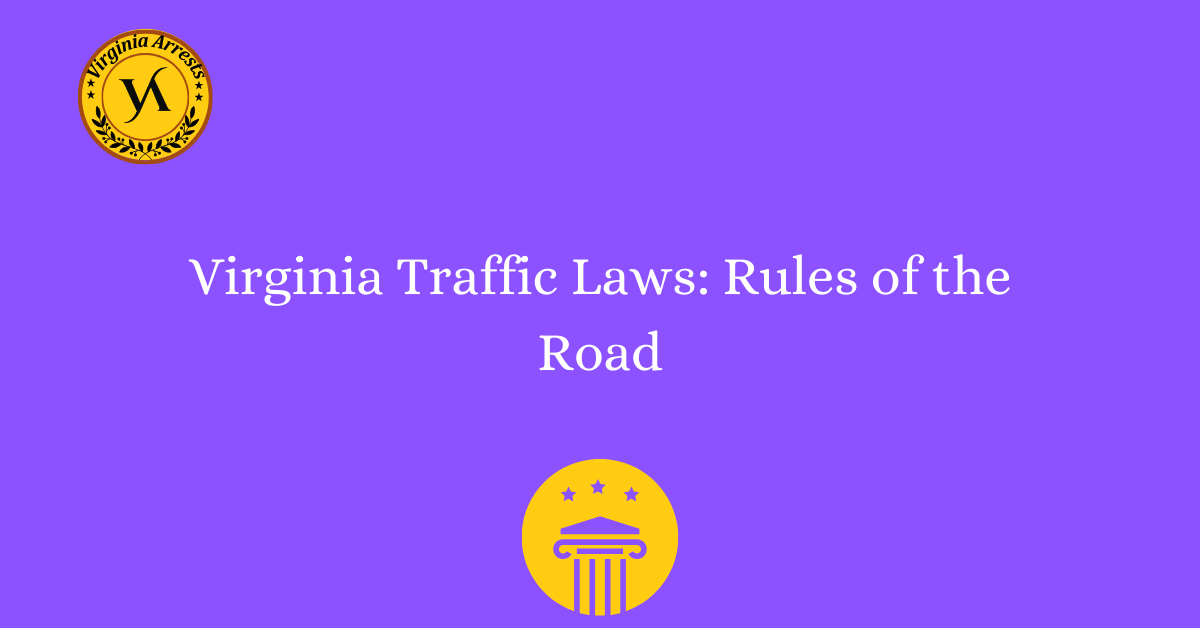Virginia Traffic Laws: Can a Passenger Drink in a Car in VA?
In the realm of traffic regulations, Virginia stands out for its unique blend of laws governing the conduct of drivers and passengers alike. One question that often arises, particularly among social revelers and road trippers, is whether passengers are permitted to indulge in alcoholic beverages while cruising down the highway. The answer isn’t as straightforward as you might think, and it opens up a fascinating discussion about laws, safety, and cultural perceptions surrounding drinking in vehicles.
Understanding the Basics of Alcohol Consumption in Vehicles
To set the stage, we must delve into the specifics of Virginia’s alcohol laws. Under Virginia Code § 4.1-307, open containers of alcohol are strictly prohibited within the passenger area of a vehicle. This legal framework is designed primarily to ensure safety and reduce the risk of alcohol-related incidents on the roads. But what does this mean for passengers?
The crux of the matter lies in the term “open container.” In Virginia, an open container refers to any bottle, can, or other receptacle that has been opened, or from which some of the contents have been removed. So, if you’re a passenger holding a half-empty beer can or a glass of wine, technically, you’re violating the law. However, if your drink is sealed and unopened, you’re in the clear.
The Legal Nuances: Passengers vs. Drivers
It’s vital to differentiate between the responsibilities of drivers and passengers. While passengers can carry sealed containers of alcohol, the driver faces stricter scrutiny. Virginia traffic laws classify the driver as the individual responsible for ensuring that everyone in the vehicle complies with regulations. This means if a passenger is drinking an open container, the driver may also face consequences, such as fines or other penalties.
Yet, the conversation doesn’t merely stop at legal repercussions. There exists a broader cultural dialogue surrounding the idea of drinking in vehicles. In many circles, the notion of sipping a drink during a road trip is part of the vacation experience, creating an atmosphere of relaxation and leisure. However, this enjoyment must be reconciled with the legal ramifications and the importance of responsible behaviors.
Exceptions to the Rule: Special Circumstances
Interestingly, there are specific locations within Virginia where the rules differ. In some areas, such as designated entertainment districts, local ordinances may allow consumption of alcoholic beverages in certain public places. Here, the definition of “public place” can be a murky one, with regulations varying from town to town. Always check local laws before assuming that an exception applies!
Moreover, Virginia permits the consumption of alcohol in some larger transport vehicles, such as limousines or party buses. These vehicles may have specific licenses allowing passengers to drink while en route, thanks to their controlled environments and professional drivers. This distinction highlights another layer of Virginia’s alcohol regulations and showcases the state’s nuanced approach to public safety versus personal freedoms.
The Consequences of Ignoring the Law
What happens if a passenger disregards these laws? The consequences can range from a simple ticket to more severe repercussions if the situation escalates. If a law enforcement officer pulls over a vehicle and discovers that passengers are consuming alcohol illegally, the driver may receive a citation, potentially affecting their driving record and insurance rates.
Additionally, in the event of an accident, the liability could shift. If alcohol consumption is a factor, it may complicate insurance claims, leading to higher premiums or legal consequences for all parties involved. Ignorance of the law is rarely accepted as an excuse, making awareness of Virginia’s stringent rules imperative.
Promoting a Culture of Responsibility
With all these regulations, one might wonder about the underlying aim. The primary intent behind these laws is to foster a culture of responsibility among drivers and passengers alike. The safety of all individuals on the road is paramount; thus, Virginia’s laws emphasize sober driving and responsible enjoyment of alcoholic beverages.
Furthermore, the significant rise in rideshare services has created a convenient alternative for those who wish to indulge without worrying about the legal implications. By utilizing services like Uber or Lyft, parties can revel in their merriment without risking legal entanglements. This shift reflects a broader societal change towards valuing safety over carefree indulgence.
Conclusion: A Reflection on Choices
The question of whether a passenger can drink in a car in Virginia incites deeper reflections on legality, responsibility, and social customs. While the laws are clear—open containers are forbidden—the cultural interplay illustrates a captivating landscape where personal freedom meets public safety. As you plan your next road trip or social gathering, remember to stay informed about the laws that govern your activities. After all, enjoying life’s moments responsibly ensures that the good times keep rolling for everyone—driver and passenger alike.
